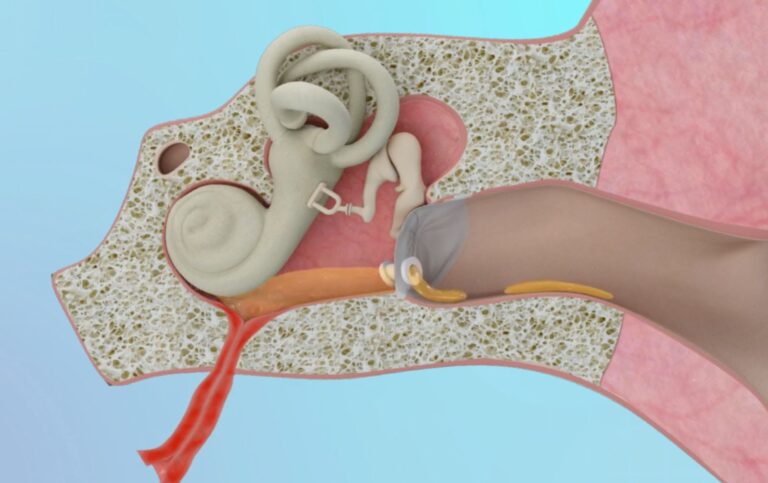Why do my ears feel clogged or what causes clogged ears? If you have this problem, what do you do? Can water, allergies, sinus infection, cold, flights, or other inner ear infections cause this problem? Are there eardrops, home remedies, and other treatments that can help get rid of deal with this menace?
Clogged or plugged ears refer to a feeling of fullness or pressure in your ears due to obstruction of Eustachian tubes (that results in positive or negative pressure in the middle ear) that connect the nose and your middle ears.
Clogged ears might be accompanied by some earache, ear pain, dizziness, popping or crackling sound, muffled sense of hearing, etc.
The eustachian tubes help balance the inner ear and outside air pressure and it should click each time you blow your nose, yawn or swallow when it is functioning properly. Clicking happens as it opens momentarily to allow air to flow from the inner ear to the nose (outside environment).
Although the problem is common in children, it also affects people of all ages and you might experience clogged ears at various times such as when you wake up, while sleeping on your ear, while you are talking, when exposed to extreme weather conditions or throughout the day.
Plugged or clogged ear symptoms
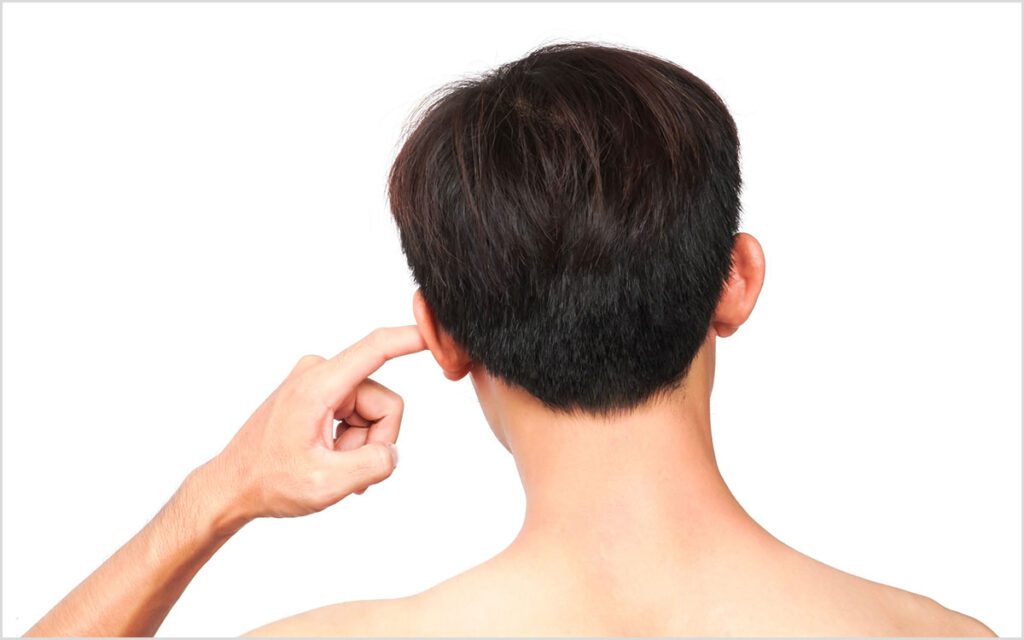
Depending on the cause is, plugged ears may be accompanied with a number of symptoms such as sore throat, ringing ear feeling, muffled hearing, some pressure behind your ears, dizziness, numbness, and some pain (they might hurt or not hurt i.e. ears feeling clogged but doesn’t hurt or huts).
Sometimes your ear might feel like it needs to pop or crackle or it feels like it has water or fluid, even after cleaning and drying it especially if it is due to ear infections.
Why does my ear feel clogged or what causes clogged ears?
With a rough idea of what clogged or plugged ears are, it is time to look at some of the common causes of this problem. While discussing each of these cases, we will mention treatments, cures and remedies that might be helpful.
1. Clogged ear sinus infection and treatment
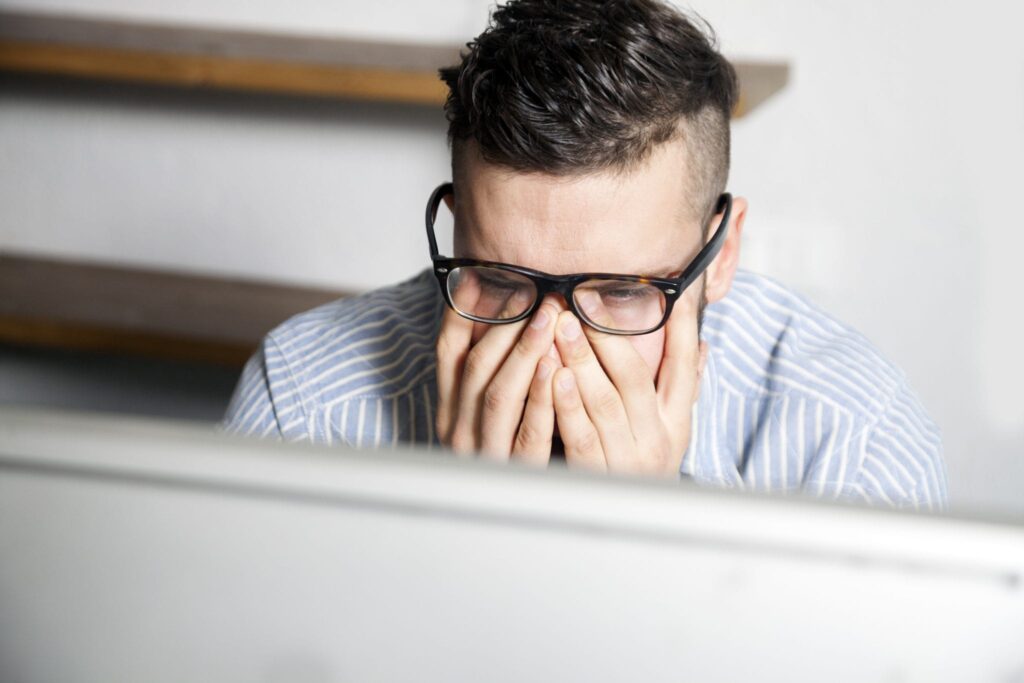
Sinus infection is one of the common causes of plugged ears i.e. pain, dizziness, and that muffled-ear sensation, like you’re in a descending plane, can be caused by sinus woes. This is often accompanied by some sinus pressure on your cheeks and behind ears especially if your eustachian tube tissue lining gets infected too.
When caused by sinus infection, you will have other symptoms such a headache that worsens, cough, bad breath, fatigue, deteriorating sense to smell, fever, stuffy or runny nose that stays for more than a week and a “thick yellow or green mucus draining from your nose or down the back of your throat (postnasal drip)” [webmd.com].
Treating plugged ears from a sinus infection
Although sinus infection can be due to bacteria, viruses and allergies, according to Greg Davis, ENT specialist from the University of Washington Medical Center in Seattle, mostly, these acute infections go away on their own or after a simple course of antibiotics.
Other clogged ears sinus treatments include sinus irrigation or use of saline nasal spray (to clean your nose twice a day), steroids, decongestants or OTC pain relievers such as Advil, Motrin, Tylenol and Aleve to reduce earache. Furthermore, keep your head up, blow your nose gently and avoid places with extremely high or cold temperatures.
2. Plugged ears due to cold
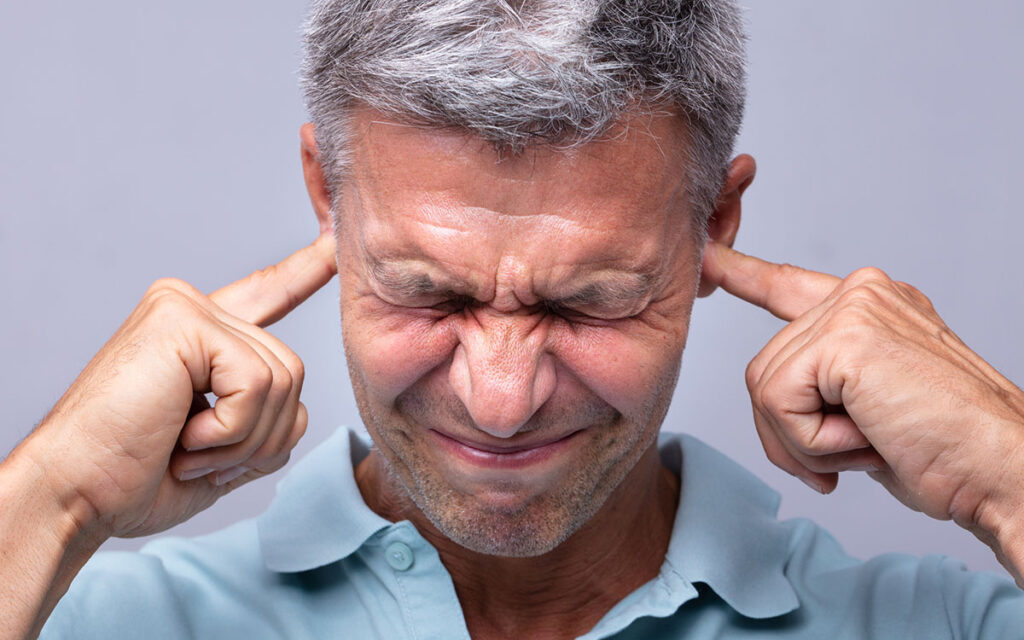
The second common clogged ear cause is cold. This is a viral infection of the nose, throat, sinuses and upper airways that often resolves on its own within two weeks. It resembles flu but comes gradually, doesn’t commonly have aching muscles, high fever, and it is not often accompanied by headaches. Sometimes you might suffer from ear clogging from the cold that won’t go away if you persistently suffer from colds.
Besides your ears feeling clogged (i.e. pressure in your ears and at times face), you will have other symptoms such as a sore throat, runny and stuffy nose (mucus buildup), fatigue, a cough, swollen sinuses, sneezing, and hoarseness of your voice as well as a general unwellness feeling. Other less often symptoms might include fever (common in children), earache, headache, mild eye irritation and loss of smell and taste abilities.
Treatment of clogged ears from cold
Try sinus irrigation, use a neti pot (flushes sinus and thins mucus), over the counter cold medications (including pain killers such as ibuprofen and paracetamol) and decongestants. Also, drink lots of fluids, get sufficient rest and have high fiber, low-fat healthy diet.
There are also a number of home remedies such as gargling salt water, sucking menthol, nasal saline drops, vapor rubs, inhaling steam, and taking a hot steamy shower among others that do help.
3. Ear clogged with wax
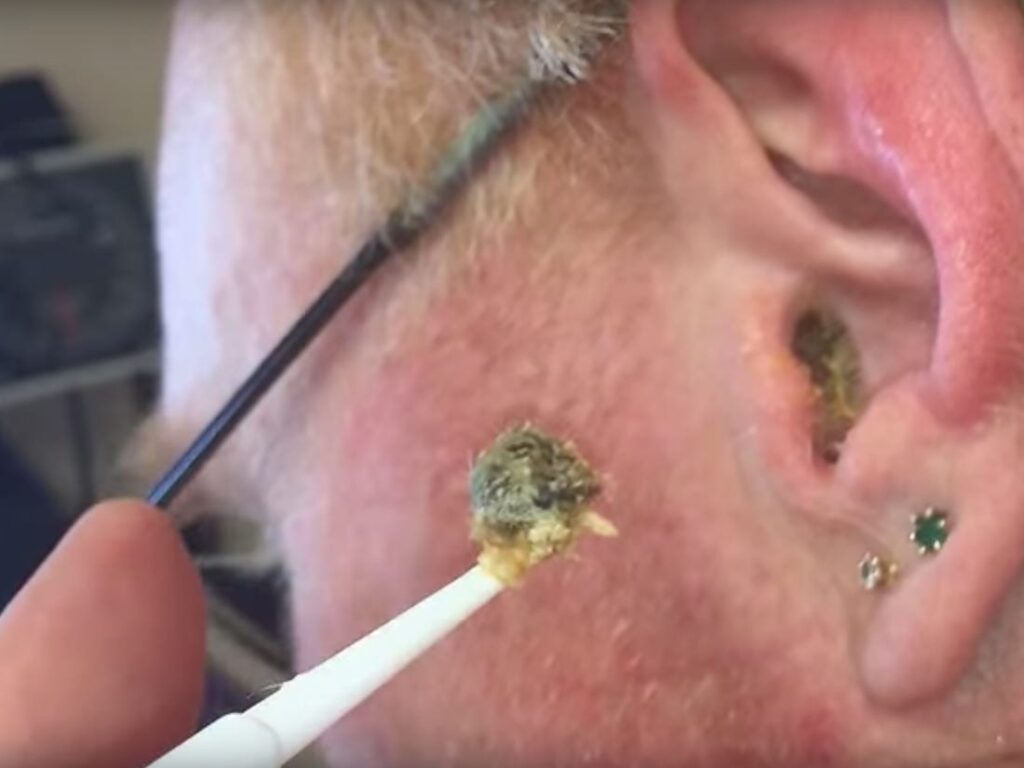
The ear canal is lined with hair follicles and glands that produce a waxy oil called cerumen which helps in protecting your delicate ear canal lining as well as trapping bacteria, dust and germs that would otherwise get into your ears.
However, the buildup of earwax can lead to clogged ears. This is one of the common causes of hearing loss i.e. you cannot hear because your ear canals are plugged.
Common symptoms include earache, “fullness in the ear or a sensation that the ear is plugged, noises in the ear (tinnitus)” [www.nlm.nih.gov], loss of hearing (partial or complete), dizziness, ear ringing, itchiness, ear drainage, etc.
Getting rid of clogged ear wax
There are many ways of getting rid of clogged ear wax you will find online. Ensure you do not try any method suggested but rather go for the safe ways only. The easy, safe and common ways include the following:
1. Use of glycerin, baby or mineral oil
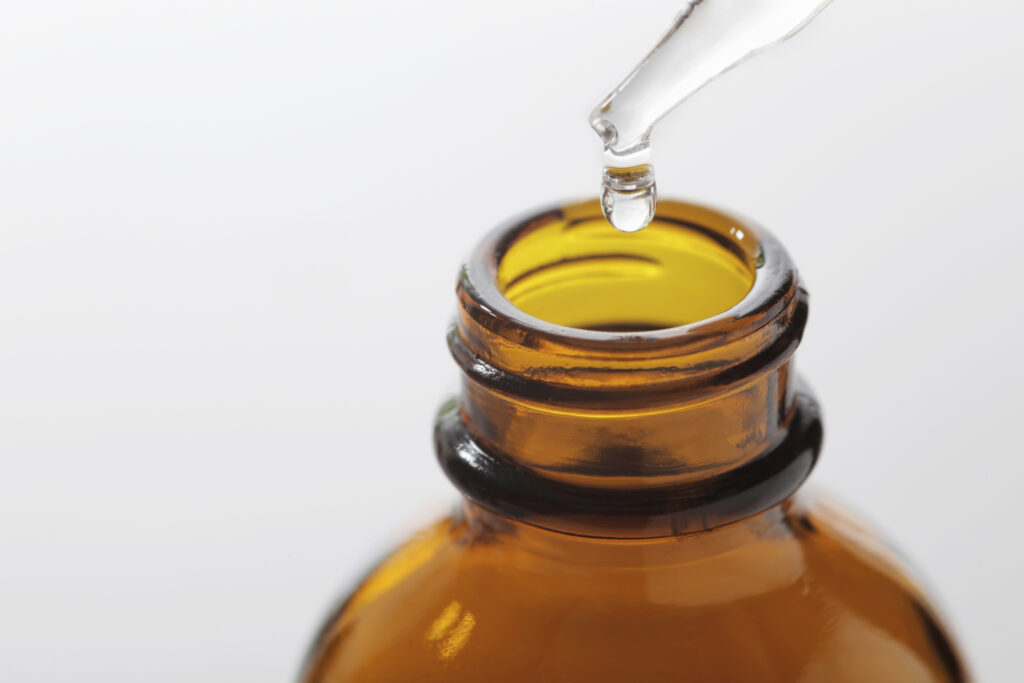
With an ear, dropper adds a few drops of baby oil, glycerin, or mineral oil twice a day for about 5 days to help soften the wax. Once your earwax becomes soft, it will come out on its own.
2. Unclog earwax with hydrogen peroxide
If you do not see any results with the method (i) above, “try putting a little hydrogen peroxide in your ear to remove the wax” [healthline.com]. Once you have added a few drops, wait for a short while until the fixing stops and drain it by tilting your head or squirting water at your body temperature with bulb aspirator to remove the wax. Note that the hydrogen peroxide should be diluted to 3%.
3. Use of warm water
Another good relief for clogged ears due to earwax is the use of warm water. Using a rubber ball syringe filled with warm water, “tilt your head, and pull your earlobe up a bit so that you can direct the water into your ear canal” [healthline.com]. Repeat it a few times and dry your ears. To avoid dizziness, ensure the water is at your own body temperature.
4. OTC commercial eardrops
Try using over the counter eardrops such as Murine or Debrox which help soften the wax. Once you have added a few drops, give them 5 minutes to soften the wax and let it drain from your ears.
If your earwax does not come out, see an otolaryngologist for manual removal as the American Academy of Otolaryngology recommends.
NOTE: Avoid handling, do not use Q-tips or objects to remove earwax as these will only push the wax deeper. Furthermore, ensure you do not have any perforation on your eardrums or middle ear infections while trying the above remedies. Finally, see your doctor in case of drainage form ear, ear pain, loss of hearing, or fever.
4. Swimmer’s ear or external otitis
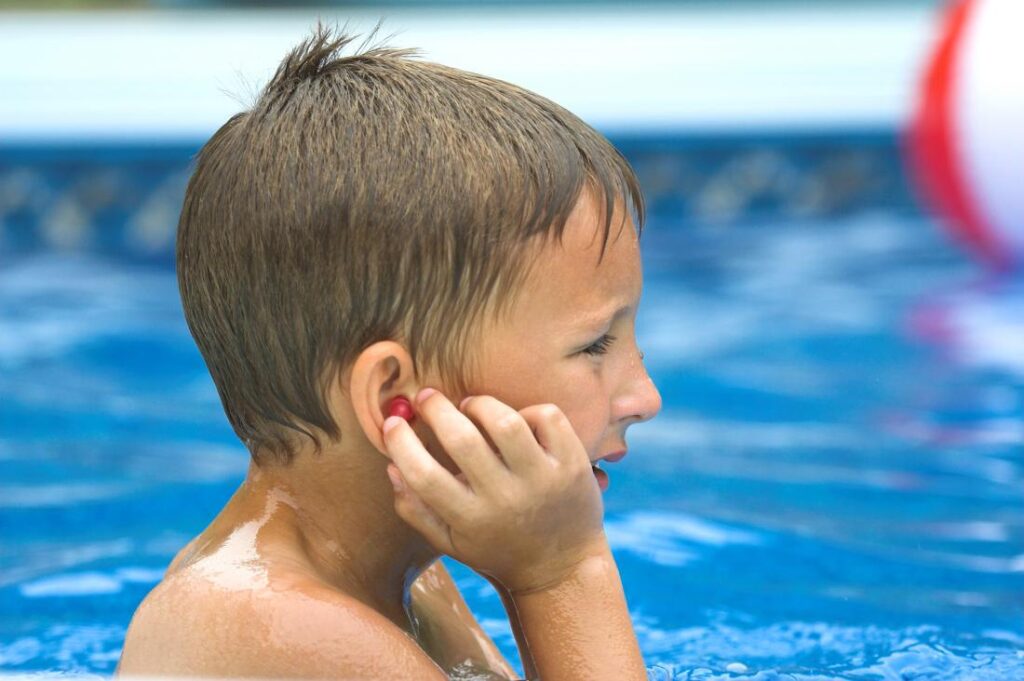
Another possible cause of plugged ears is otitis externa. This is an infection that affects your outer ear canal caused by bacteria common in contaminated water or soil. i.e. ”It’s often brought on by water that remains in your ear after swimming, creating a moist environment that aids bacterial growth.” [mayoclinic.org]. Furthermore, the use of cotton swabs, putting fingers to ears or objects can cause this problem especially if you damage your ear canal skin lining.
Symptoms of external otitis include itchiness, redness, the discomfort of the ear canal, odorless fluid drainage from the ear canal. It can also result to muffled hearing, pus discharge, feeling of fullness inside your ear and partial blockage of your ear canal by swelling, fluid and debris, fever, swollen neck lymph nodes or pain radiated to your neck and side of head and face.
Treatment or is by “over-the-counter analgesics and topical eardrops” [medscape.com] where acetic acid drops (helps in killing bacteria), antibacterial drops (treat the causative bacteria), and antifungal preparations (deal with any fungal infection that might be present) and corticosteroids ear drops (helps in reducing any swelling) are often used. Severe cases might require intravenous and oral antibiotic therapy as well as the use of narcotic analgesics.
5. Clogged ears after flying
The other common cause of a plugged ear is pressure imbalance between the inner ear and outside environment experienced when an airplane is gaining altitude or descending i.e. you will often have clogged ear after having a flight. A similar problem is experienced during deep-sea diving or when using elevators.
This happens since the eardrums are sucked inwards or outwards due to the pressure imbalance muffling hearing and stretching eardrums. This can at times be painful. Yawning, chewing gum or swallowing can help deal with this problem.
6. Acoustic neuroma
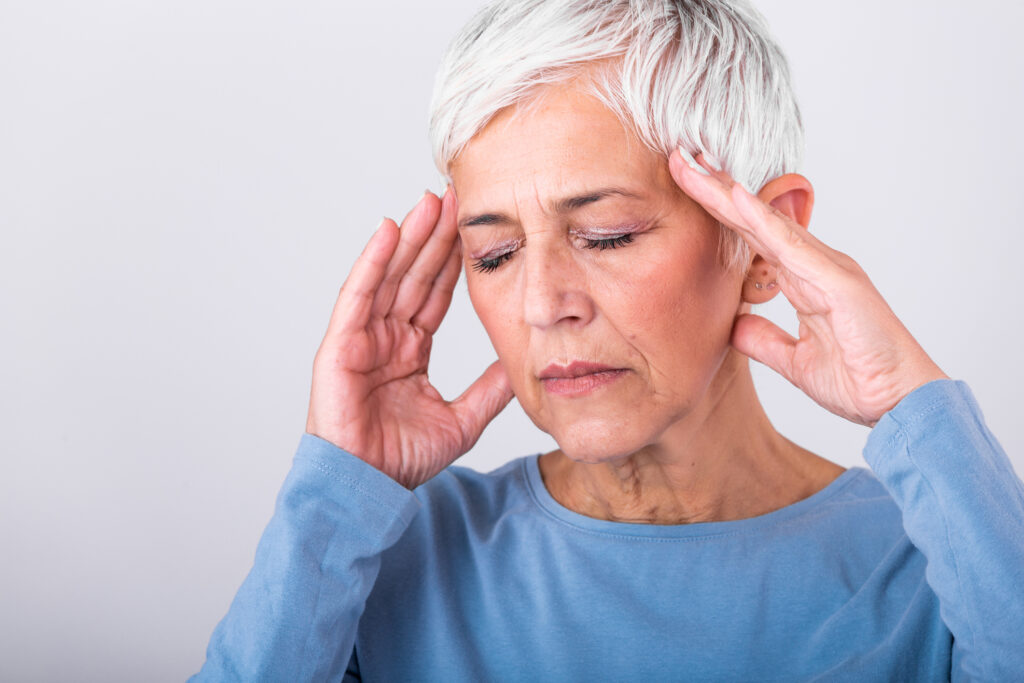
Acoustic neuroma, a non-cancerous benign (or at times slow-growing tumor) on the acoustic nerve that leads from a person’s inner ear to his or her brain and it “can cause hearing loss, ringing in your ear and unsteadiness” [mayoclinic.org] as well as plugged ears. Treatment is by radiation and surgical removal.
7. Water clogged ear
Letting water to get into your ear canal can cause clogging. This is uncomfortable, decreases hearing and makes you feel like something is trapped in your ears. Water in ear can be removed by draining or blow-drying your ears, use of eardrops, chewing gum, adding more water, etc.
See more on the water in-ear and removal
8. Clogged ears allergies
Airborne allergens such as dust, pet dander, pollen, dust, etc. can trigger histamine production leading to various allergy symptoms such as sneezing, itchy throat, swollen face, coughing, lightheadedness (a feeling that you might faint or pass out), numbness (if the allergy is serious) dizziness, and sinus congestion.
These symptoms can lead to blockage of the eustachian tube and consequently clogged or plugged ears i.e. when you begin experiencing symptoms in your ears, including that annoying clogged feeling that can make it difficult to hear, it’s often because your eustachian tube is blocked with mucus. Such a blockage can be due to the above allergic reaction symptoms.
Antihistamines, corticosteroids, decongestants and leukotriene inhibitors will be helpful. Furthermore, avoid triggers, consider allergy shots as well as the various home remedies to ease some of the allergy symptoms such as nasal washes.
Other causes of clogged ears
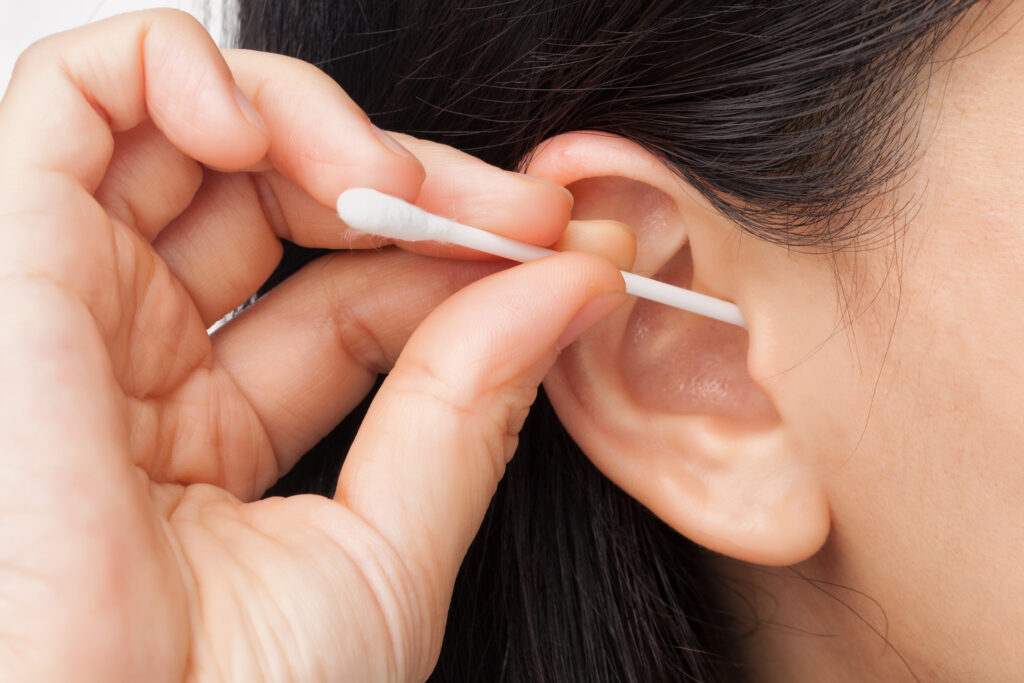
Other common causes of clogged ear tubes include eustachian tubes that do not open well to balance the pressure inside your middle ear, pregnancy (some women often suffer from plugged ears while pregnant making pregnancy a possible cause), loud music especially after a concert, any middle ear infections, foreign bodies in your ears, fluid collection in the middle ear, a hole on your eardrum, cochlear hydrops and TMJ.
How to get rid of clogged ears or How to clear a clogged ear
The methodology you are going to apply to clear a clogged ear will depend on what caused it. We have already seen the various causes such as clogged ears from water especially after swimming, earwax, flight in-plane, cold, sinus congestion, ear infections, allergies, etc. as well as how to deal with each of these causatives.
We are now going to mention general ways to unclog a clogged ear before looking at home remedies and best eardrops to unclog ears. Some of the additional ways clear a clogged ear include the following:
- If caused by infections, various prescription and over the counter medication may be recommended to help unblock a clogged ear. Popular treatments include antifungal, antibacterial and corticosteroid ear drops (topical nasal steroids). See your doctor immediately for diagnosis and prescription.
- Try using decongestants for a few days (don’t use them for prolonged periods to ease the symptoms i.e. not more than 3-4 days to reduce risks of rhinitis medicamentosa).
- Go for tube ventilation to drain any fluid and reduce the pressure in case of severe plugged ears
- Alcohol and apple cider vinegar can help in killing bacteria that could be behind your clogged ears. Mix equal amounts of alcohol and apple cider vinegar and put a few drops into your ear. After a few minutes, drain it by tilting your ear.
Clogged ears surgical treatment or myringotomy
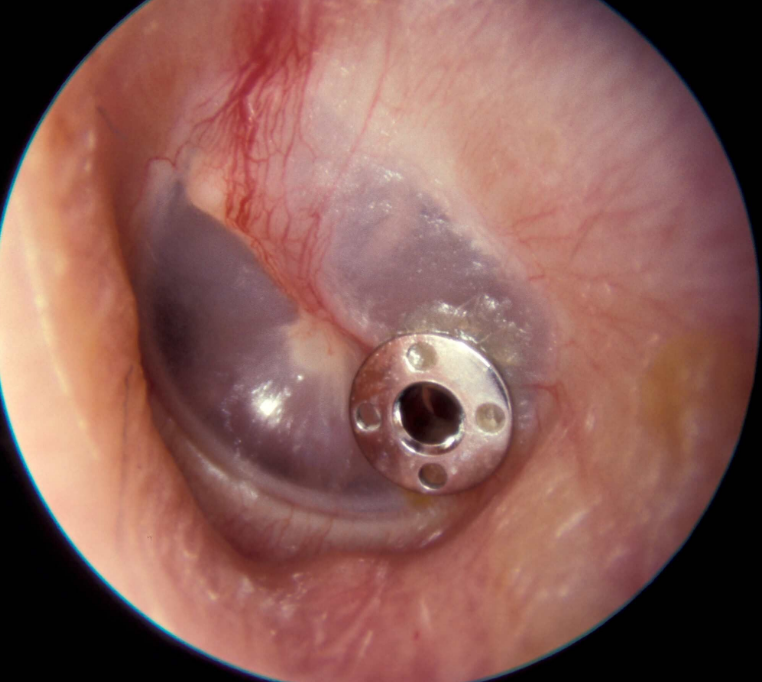
Sometimes, treatment of clogged ears might involve a surgical procedure where an incision is made on the eardrum to help drain fluid and thus bringing pressure balance on the outside and inside the ear.
Besides an incision, there are cases where a small tube is placed on the eardrum. This one of the ways to treat clogged ear problems if you are suffering from eustachian tube dysfunction.
Home remedies for clogged ears – clearing or fixing plugged ears at home
There are a number of home remedies for clogged ears you can use to deal with the various causes including those from allergies, sinus infection, due to cold, water in ears, etc.
Before I see a doctor, whenever my ears are clogged, I always try the various remedies. Of course, just like most remedies, results might work for some individual effectively while in others, results might be somewhat less effective or slow.
We have already mentioned a number of home remedies especially while looking at how to unclog earwax. Some additional popular home remedies to fix clogged ears include:
1. Did you know chewing gums can clear clogged ears?
The easiest way to relieve a clogged ear is chewing sugar-free chewing gum. It can help in opening clogged eustachian tubes especially if caused by rapid descent or ascent such as using an elevator or taking an airplane flight.
2. Breathing exercises or Valsalva maneuver
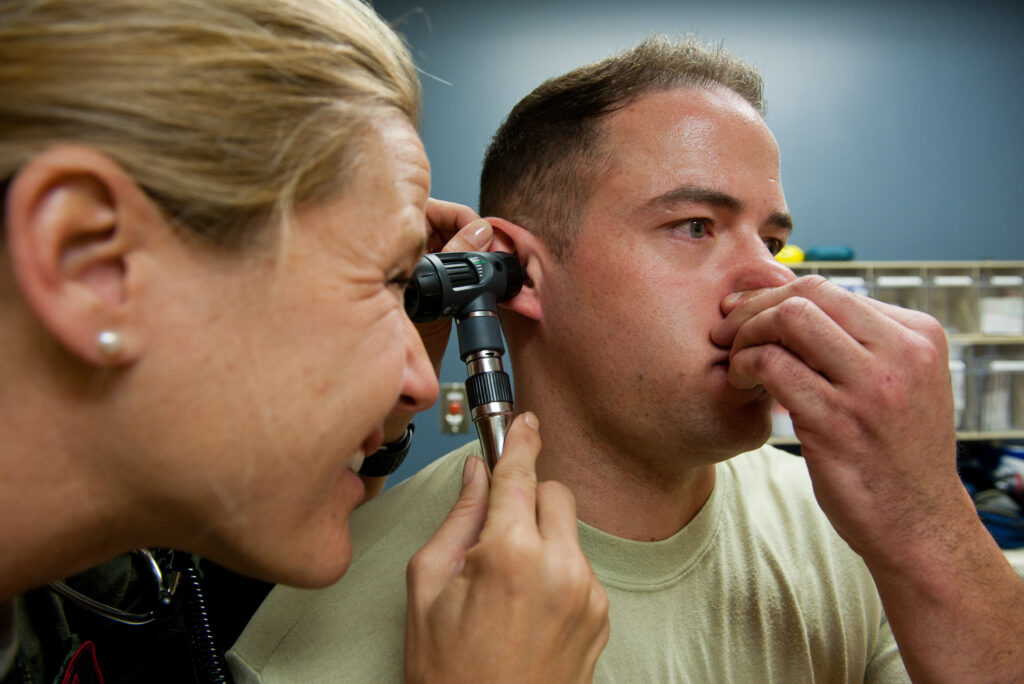
To do this, “take a deep breath and try to blow out of your nose gently while pinching your nostrils closed and keeping your mouth shut. A popping noise sound will mean you have successfully unclogged your ears. Avoid blowing too hard as you try to open a clogged ear as it can damage your eardrums.
3. Warm compress
Place a heating pad or a warm washcloth on the affected ear for 5 to 10 minutes to help relieve pain, reduce congestion and unclog your ears.
4. Yawning
Yawning is a simple natural remedy for plugged ears that helps to decrease air pressure in your ears as well as make your muscles active. These two actions will help your eustachian tubes to open much easier. If you hear a popping or crackling sound as you yawn, you would have succeeded in opening your clogged ear
5. Gargling hot saline water
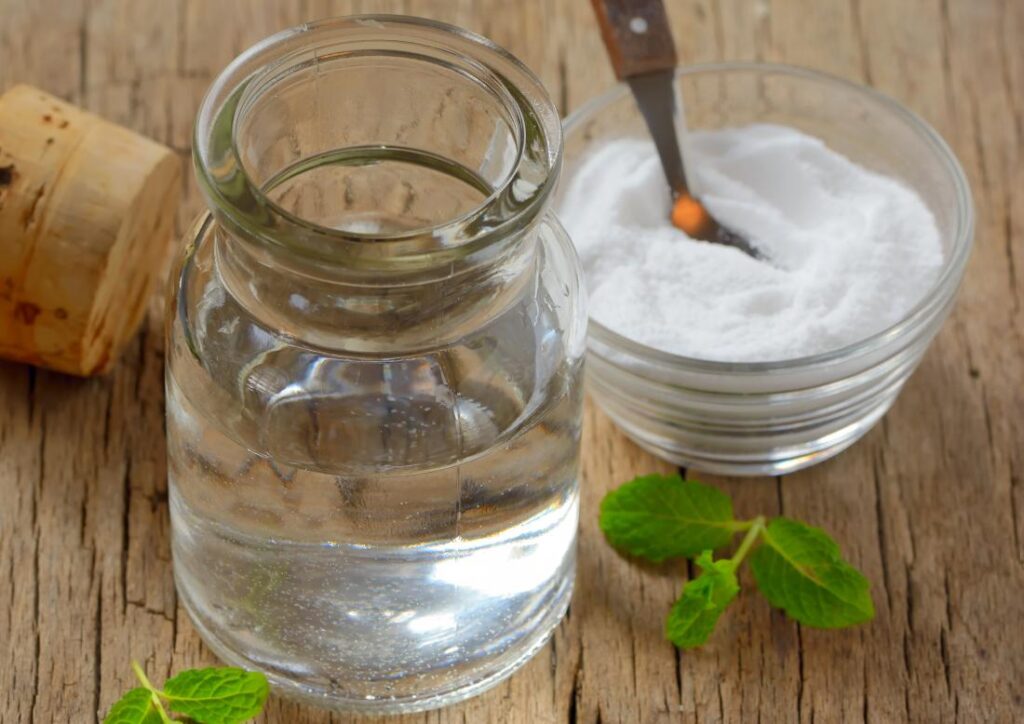
Prepare a saline solution by adding a teaspoon of salt to a glass of hot water and gargle it for about 15-30 seconds to help ease nasal and ear congestion. Repeat severally until you get some relief on your plugged ears.
6. Olive oil or garlic oil
Another home remedy for the clogged ear is to add a few drops of warm olive oil (at your body temperature) using a dropper into your ear canal and let it stay for about 5 to 10 minutes before tilting your head to drain the oil out. Garlic oil can similarly also be used.
7. Inhale tea tree oil
According to healthyandnaturalworld.com, inhaling tea tree, lavender or eucalyptus oil can help in unclogging blocked ears. Tea tree oil has antiseptic and antimicrobial properties that will help cure a clogged ear. To use this remedy, put boiling water in a bowl, add a few drops of tea tree oil, and inhale its steam.
8. Other remedies
Other clogged ears remedies you should also try include using a humidifier in your room if it is extremely dry and adopting a propped up or semi-upright position by adding a few more pillows while sleeping. Sleeping on your side also helps, i.e. according to the American Academy of Family Physicians.
Ear drops for clogged ears
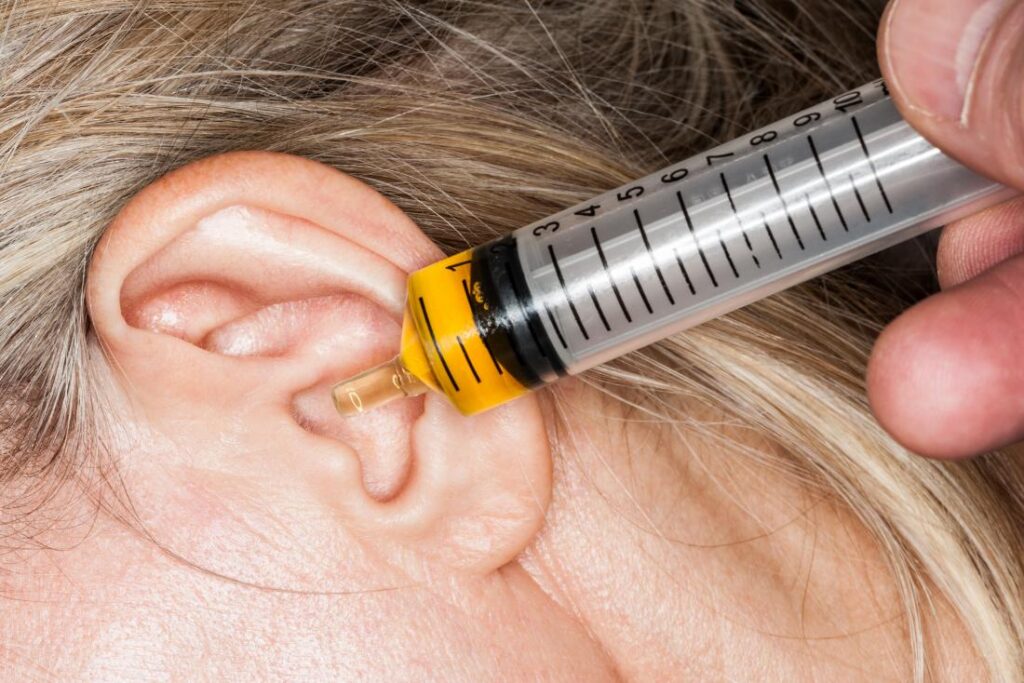
If your plugged ears are from cold, allergies, clogged wax, among other causes, there are a number of ear drops you can give a try. You will get these ear drops in your local pharmaceutical stores, at Walgreens, Walmart, CVS, and other leading pharmaceutical companies.
There are both prescription and OTC. If you are creative, you can make some ear drops at home i.e. homemade ear drops for unclogging ears.
For earwax removal, some of the best ear drops or medicines to try to include Debrox, peroxide, Ceruminex, mineral oil and Murine. If you have pain, try benzocaine topical anesthetic.
Plugged ears prevention
To avoid the problem of clogged ears, clean your ears regularly, dry them after taking a shower with a soft cloth, avoid diving or swimming when you have a cold or respiratory infection, don’t use Q-tips for wax removal (use them only on your outer parts of your ear) and don’t remove foreign objects at home – let a doctor remove them.
Frequently asked questions and answers on clogged ears
To further enhance your understanding, we have included a few frequently asked questions and answers below.
1. I feel dizzy and my ears feel clogged
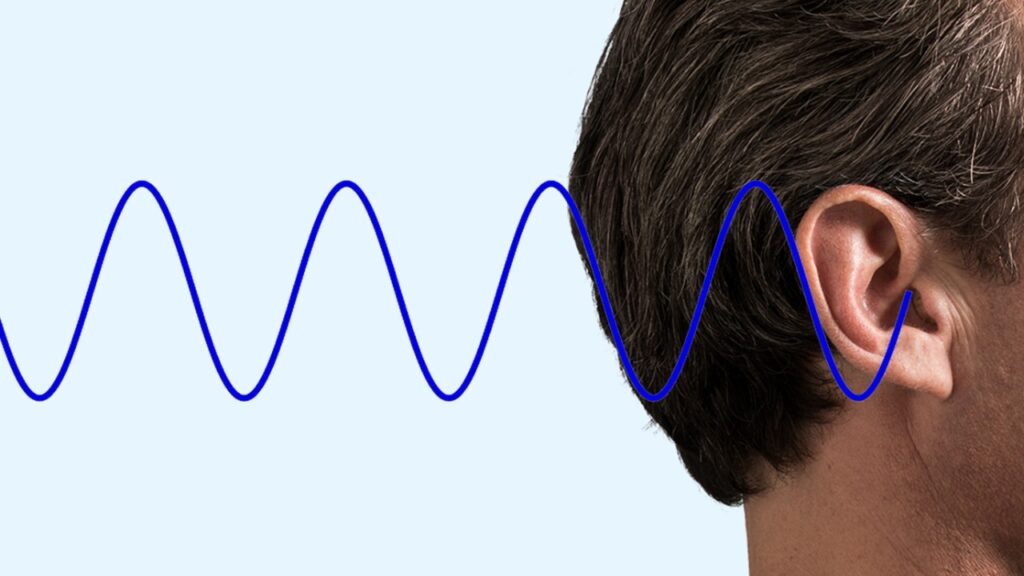
Dizziness is a common symptom associated with clogged or plugged ears and it is due to pressure build-up in the inner ear. Of course, your inner ear is responsible for maintaining body balance.
If you feel dizzy, avoid moving fast, take plenty of fluids, and if possible do not take much salt, caffeine, tobacco products, salt and alcohol since these products do affect the circulation of blood and this might, in turn, worsen dizziness.
2. Clogged inner ear or clogged eustachian tube vs. clogged ear canal
Clogged Eustachian tube occurs when the eustachian tube becomes blocked by a number of reasons include common cold, middle ear infections, sinusitis, pressure variations due to rapid change in altitude, etc. These canals are what help balance air pressure in your inner ear and pressure outside your ears i.e. environment.
On the other hand, clogged ear canal (running from outside the ear and ends at the eardrum) can be caused by factors such as water, swimmer’s ear, excessive wax production, or foreign body. When this happens, a hearing will be hampered since sound cannot reach eardrums well.
3. Sore throat and clogged ears?
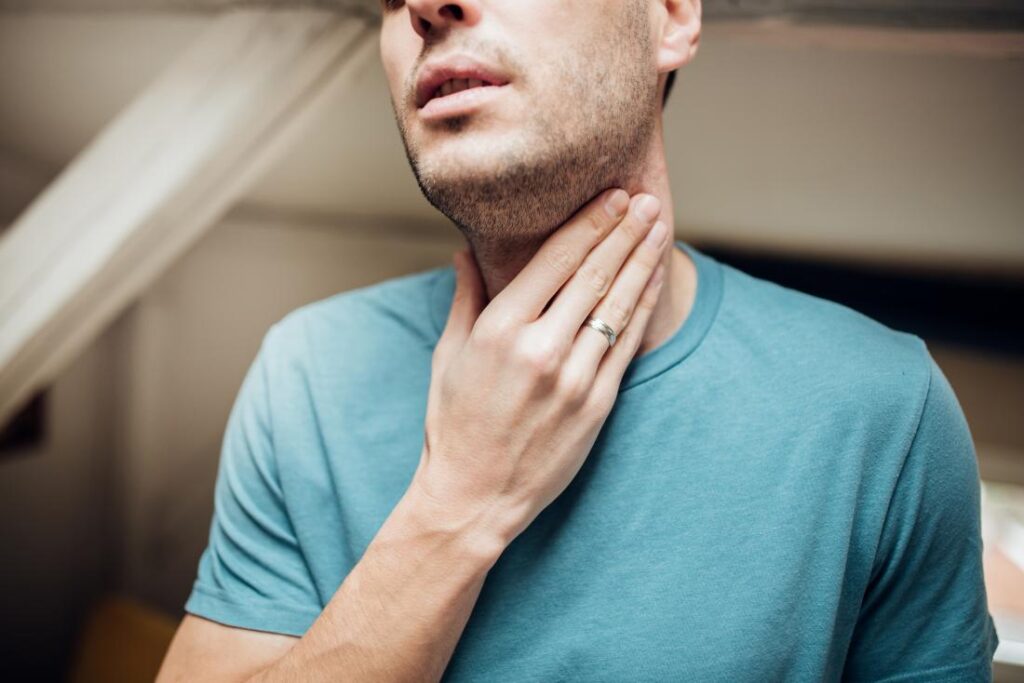
This is likely to be caused by a cold, sinus infection or other upper respiratory infections. See a doctor to confirm the cause before recommending the best treatment option.
4. Can cleaning clogged ears unclog them?
Some people often want to clean a clogged ear imagining they might unclog them this way. Unless it is the ear canal that is clogged, cleaning alone cannot unclog plugged ears. However, it can help in reducing the chances of getting infections. As already seen, middle ear infections are one of the causes of this problem.
Ears feel clogged no wax or infection – eustachian tube dysfunction
Some people suffer from ears that feel clogged even when they do not have any of the above-mentioned causes. This might be caused by the inability of the eustachian tube to open due to problems such as large adenoids (where adenoidectomy is the surgical treatment required) or any other condition that can block these tubes. To some people, the tubes might open but they get filled back quickly. This will leave their ears feeling clogged always.

